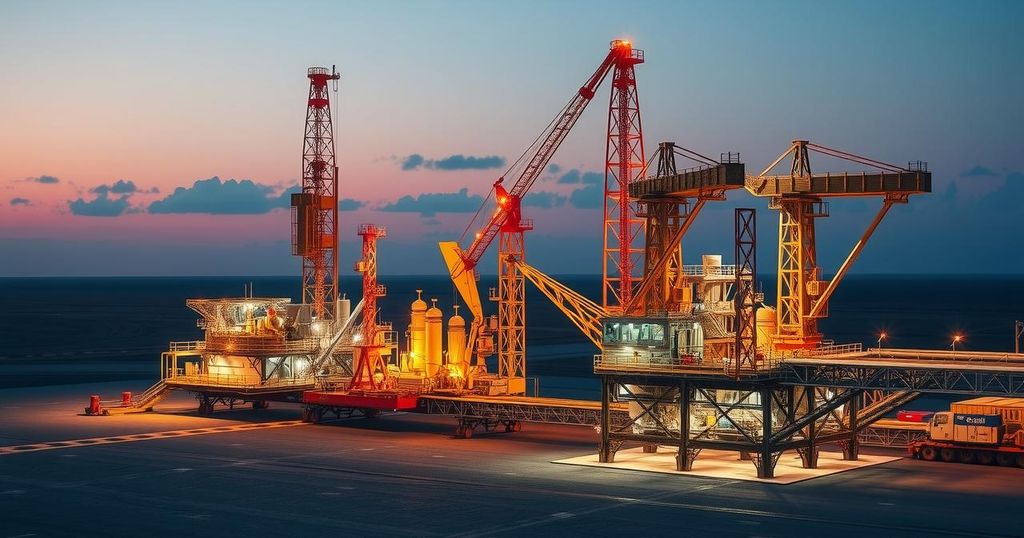South Sudan plans to resume oil production at 90,000 barrels per day beginning January 8, 2025, following the lifting of a blockade due to ongoing conflicts in Sudan. Minister Puot Kang Chol emphasized the necessity of oil for economic survival, despite health concerns from reliance on traditional fuels. Environmental safeguards are being considered as the country hopes to alleviate financial pressures for both South Sudan and Sudan.
South Sudan has officially announced the resumption of its oil production, targeting an output of at least 90,000 barrels of crude oil per day. This decision follows the lifting of the force majeure clause invoked by Sudan in February 2023, which had halted South Sudan’s ability to export oil to international markets due to the conflict in Khartoum. Minister of Petroleum, Puot Kang Chol, declared that production would restart on January 8, 2025, marking a significant step towards economic revival for the nation, where 90% of the GDP is derived from fossil fuels.
Chol remains resolute about the necessity of continuing oil production despite increasing global focus on renewable energy. He posited that for South Sudan and the African continent, oil remains crucial for economic survival. Meanwhile, citizens like Betty Yobu express concern for their health due to the reliance on traditional fuels like charcoal, which have led to health issues, including chronic respiratory problems. Amidst this, Chol underscored the harsh realities faced by many, recognizing that oil revenues are essential for improving healthcare access and overall living conditions.
The sustainable development of oil resources continues to face scrutiny from environmental advocates, particularly following past incidents of environmental negligence by oil companies in the region. Authorities assert that stringent environmental safeguards must be established prior to recommencement of operations to safeguard local health and ecosystems. As South Sudan prepares to resume production, optimism exists that it will ease financial burdens for both South Sudan and Sudan. The country ranks third in sub-Saharan Africa for oil reserves, with an annual production of approximately 3.5 billion barrels, underpinning its significance in the regional economy.
South Sudan’s economy is heavily dependent on its oil sector, which accounts for a significant portion of its GDP. The nation’s oil production and export capabilities were severely impacted by a conflict in the neighboring Sudan that led to the suspension of exports. The force majeure clause allowed Sudan to avoid liability amidst instability, threatening South Sudan’s economic recovery. As international markets reopen, there are critical discussions about balancing oil production with public health concerns and environmental sustainability, reflecting ongoing debates about resource use and energy transitions globally.
In conclusion, South Sudan’s resumption of oil production represents a critical step toward economic recovery for a nation reliant on its fossil fuel resources. While the government focuses on ramping up production to improve living conditions and healthcare access, challenges remain regarding public health and environmental concerns. The country’s actions will be closely watched as it navigates the complexities of energy production in a rapidly changing global context.
Original Source: www.voanews.com






